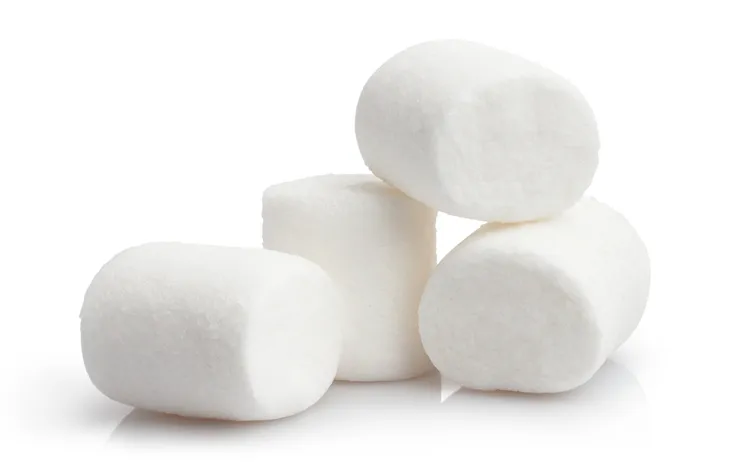There are few things more irritating, and more likely to disrupt a busy work schedule, than a painful sore throat. The condition can be accompanied by a typical head cold (which might also include a cough and stuffy nose) or it can be part of strep throat, a significant throat infection.
Either way, you’ll want to explore ways to relieve the scratchy, aggravating and often painful sensation that comes along with it. Here are a few ways to treat that nagging sore throat…
Anti-Inflammatory Drugs
Whether you’ve got a headache or a nagging lower back, there’s a good chance the first thing you’ll reach for is an NSAID. Nonsteroidal anti-inflammatory drugs like Tylenol (acetaminophen), Advil (ibuprofen), or Aleve (naproxen)—are a reasonable first option when treating a sore throat.
However, it’s important that you always read and follow all directions on the drug’s bottle and box. If you find that you’re taking the recommended dosage and it’s still not enough to deal with a nagging sore throat, you should probably see your doctor about a more advanced treatment, according to research on WebMD. Parents should also consider using an anti-inflammatory drug specifically designed for children when treating a sick kid.
Rinsing with Salt Water
Chances are someone over the years has recommended gargling with salt water as a possible treatment for a nagging sore throat. Surprisingly, it’s not a crazy idea. In fact, research has shown that a saline solution (consisting of salt and water) can drain inflamed throat tissue of excess fluid, reducing pain and swelling.
Gargling with a saline solution has also been shown to loosen mucus in the throat, eliminating irritants like bacteria and fungi. So, give gargling with salt water a try 3 times a day—perhaps after each meal (breakfast, lunch, and dinner).
Throat Lozenges
Many people reach for throat lozenges when they start to feel a sore throat coming on. There’s good reason for that—most of these products are designed to temporary lubricate and sooth irritated parts of the throat and many can help with a nagging cough, too.
Most lozenges contain one or several ingredients designed to soothe the throat, including benzocaine, pectin, zinc gluconate glycine, or eucalyptus oil. Some lozenges, such as Halls, contain menthol. In any case, lozenges can offer temporary relief of a sore throat—though they certainly won’t help cure an infection.
Cough Syrup
You might not think to reach for the cough syrup when you’ve only got a sore throat, but this can be an effective treatment for the nagging and often painful condition. Many over-the-counter products can offer temporary pain relief by coating the throat.
That said, not every cough syrup will fit every situation. If you’ve got a busy workday ahead and need to deal with that scratchy sore throat, use a cough syrup that won’t put you to sleep by avoiding products that contain diphenhydramine (Benadryl). An article on sore throat treatments from the Huffington Post recommends making sure to pick a cough syrup that clearly says it uses a non-drowsy formula to help relieve throat pain and swelling.
Drinking Fluids
There’s a reason your doctor tells you to drink lots of fluid—and especially water—when you come down with a cold. Fluids help restore the moisture in your body and prevent dehydration, both of which are important steps in fighting a sore throat and other cold symptoms. Staying hydrated will also keep you alert, which is important if you simply can’t stop your day and head straight to bed.
Fluids can help reduce secretions and sooth a dry, scratchy throat. And while water is helpful, research from WebMD recommends a hot fluid (i.e., tea or soup) can be even more effective in reducing throat irritation.
Use a Humidifier
Beating an annoying sore throat depends on you using all of the tools at your disposal. One of those tools should be a humidifier, or a machine that sprays water, in mist form, into the air. Doing so allows your body to absorb water with every breath, helping to moisturize your airways and reduce swelling in your throat, lungs, and nasal passages.
If you don’t have a humidifier, try taking frequent hot showers. The steam created by the shower will accomplish the same thing carried out by the humidifier.
Throat Sprays
A throat spray can be an effective way to relieve the pain associated with a sore throat. Many of these sprays, such as Chloraseptic, offer fast, effective relief. They work by using some kind of agent—in the case of Chloraseptic, phenol (a local anesthetic)—to effectively numb the throat for a few hours at a time.
Of course, it’s important to read the label before using any kind of medication. Often, there are limits on the number of times you can use a throat spray each day. Be aware of these limitations and consider talking to your doctor about this kind of treatment.
Marshmallows
Admittedly, the jury is still officially out on this one, since few studies, like this one published in Lifehacker.com, have drawn direct links between marshmallows and sore throat. But preliminary evidence suggests that the gelatin found in marshmallows could help soothe a sore throat. The root used to make marshmallows can also help in reducing inflammation, which is why marshmallow tea is sometimes used as a treatment for sore throat.
Again, we stress the research isn’t 100-percent scientifically proven when it comes to marshmallows helping fight sore throat. But they’re absolutely delicious and at the very least, might improve your mood as you struggle through a nasty cold. So, why not give it a try, right?
Stop Talking
Rest is an essential part of treating any cold. But resting your voice is a less obvious part of helping people get over a sore throat. Not only will this rest your throat, it will keep moisture where it’s needed most—in your throat. Not talking will limit the chances of your throat drying out and becoming more inflamed, thereby causing an infection to intensify and last much longer.
At the same time, it’s crucial that you rest your whole body. It takes a lot of energy for your body to fight off a nasty cold, particularly one that includes strep throat – so get to bed whenever possible and stay there.
Antibiotics
You’re probably aware that many doctors are becoming hesitant about prescribing antibiotics. It’s because they don’t want dangerous bacteria to build up a resistance to the drugs, making them less effective.
But some colds simply won’t go away without using antibiotics. If your throat includes white spots—a sign of a bacterial infection—your doctor will have little choice but to prescribe antibiotics. Also, if your sore throat intensifies to the point where you have strep throat, antibiotics will likely be prescribed. Of course, it’s absolutely imperative that you see your doctor before starting any antibiotic treatment.













